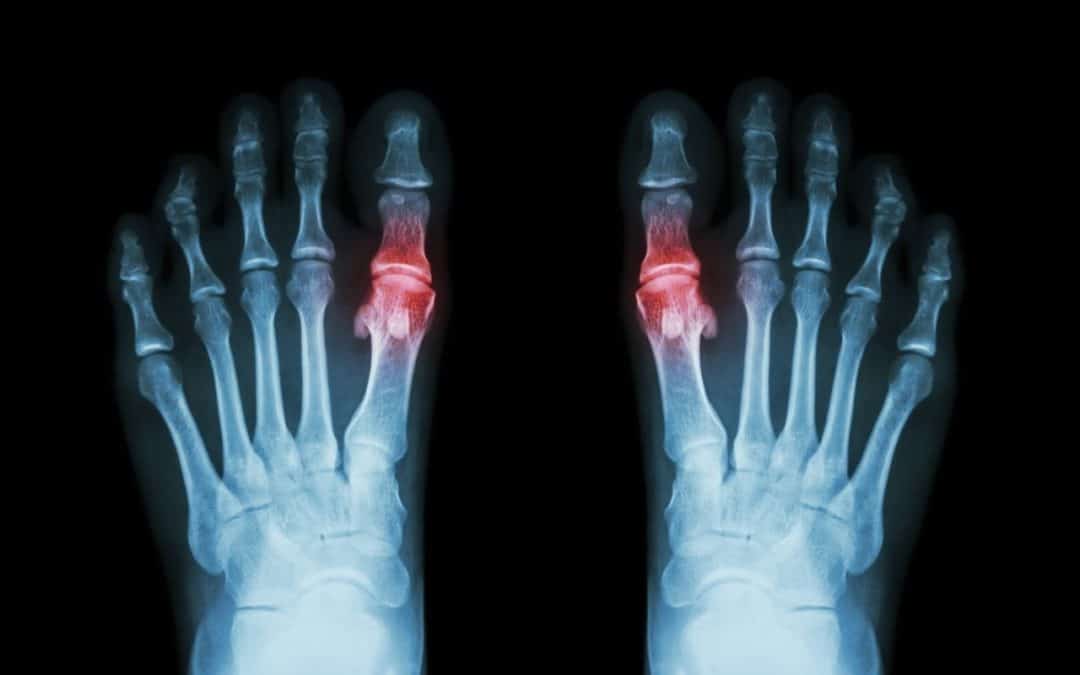Hearing loss is one of the most prevalent health conditions that people experience today. In fact, over 48 million people have some degree of impaired hearing. Extensive research shows that numerous health conditions are correlated, or can be linked, with hearing loss and this includes gout. Gout is a form of arthritis that is characterized by sudden pain, inflammation, and tenderness in the joints. A recent study showed that people with gout were 44% more likely to experience hearing loss.
Link Between Gout & Hearing Loss
Studies have shown that there is a correlation between gout and increased risk of hearing loss. This includes one study that involved researchers analyzing 5% of medicare claims from 2006-2012. This included data of 1.7 million people, ages 65 and over. By the end of the study, 89,409 people developed hearing loss. Researchers compared rates of hearing loss among patients with gout and patients without gout. Key findings include:
- People with gout had a higher rate of hearing loss
- Gout was associated with a 44% increase in risk of developing hearing loss.
This study is among the first to establish a correlation between gout and hearing loss. This supports research that also establishes a link between hyperuricemia and hearing loss. Hyperuricemia is caused by elevated levels of uric acid in the blood and high uric acid levels can lead to gout. Other studies have shown that hyperuricemia can increase the risk of hearing loss. To understand this correlation, it is helpful to know more about uric acid and the impact of its accumulation.
Impact of Gout on Hearing Health
The body produces uric acid when it processes purines which are natural bodily substances. Purines can be naturally found in the body as well as in specific foods and beverages. Typically, uric acid dissolves in the blood and passes through the kidneys and out through urine. But when the body makes too much uric acid or the kidneys release too little of it, it can build-up. Uric acid forms into urate crystals which can accumulate in a joint or the tissue surrounding a joint. This produces swelling, intense pain, adn tenderness that can occur suddenly – known as a gout attack.
Researchers suggest that the inflammation and increased oxidative stress produced by gout can impact the auditory system – the ears and brain which work together to absorb and process sound. This inflammation and higher levels of uric acid can affect the components of the auditory system – outer, middle, and inner ear. This includes the bones, sensory cells, and auditory nerve that receive and process sound. Fortunately, there are useful tips you can implement to reduce your risk of developing gout which can also help protect your hearing health.
Tips to Reduce the Risk of Gout
A key way to reduce the risk of gout is by keeping your levels of uric acid low. There are several ways you can do this, including the following:
- Drink water: water helps flush uric acid out of the body. This keeps the kidneys healthy and prevents uric acid from accumulating in the joints. Drink plenty of water throughout the day – create a helpful regimen if needed!
- Reduce alcohol intake: alcohol as well as beverages with high sugar promote uric acid build-up by removing water from the system.
- Avoid purine rich foods: foods that contain purines include red meat, seafood – mussels, scallops, trout, tuna – and organ meats like liver.
- Additional dietary changes: practicing anti-inflammatory diets like the Alternate Mediterranean Diet (AMED) and Dietary Approaches to Stopping Hypertension (DASH) are great for both hearing health and overall health. These diest focus on plant-based foods, reduced meat and alcohol intake, and elimination of processed foods.
Integrating these healthful tips can reduce your risk of developing gout and also boost your energy and overall health.
In addition to these tips, having your hearing regularly assessed is also a great safety measure. Hearing evaluations involve a painless process that measures your hearing capacity in both ears. This is a great way to keep tabs on your hearing health and track any changes you may experience. Contact us today to learn more about how you can prioritize and protect your hearing health!

